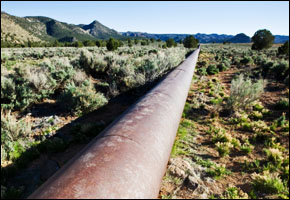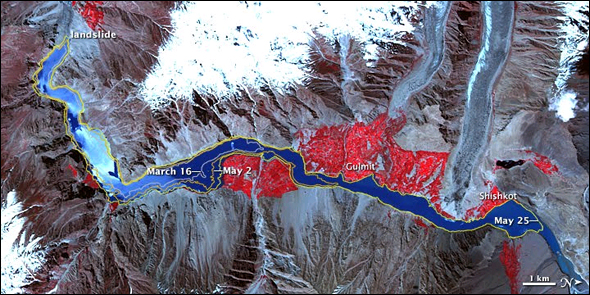Venezuela to Ration Water Because of Low El Nino Rainfall

Venezuela will enact new water conservation methods, including reducing supply by 25 percent until May, because of low El Nino rainfall, President Hugo Chavez announced on TV late last night.
The drier cycle has caused “critically low” levels for the country’s hydroelectric stations and drinking water reserves, including the El Guri reservoir, one of the world’s largest dams, Chavez said. The El Guri is located on the Caroni River, which provides 70 percent of Venezuela’s electricity. Usually the Caroni River, located in the Orinoco Basin, has a high discharge rate, but it has had difficulty replenishing itself lately.
This drought has aggravated the country’s already fragile situation. Growing demand for and under-investment in water lead to several major blackouts in Venezuela earlier this year.
During his telecast, Chavez announced the creation of a new Ministry of Electricity to confront the crisis during. He also passionately encouraged Venezuelans to quell personal consumption by taking shorter showers, saying that wasting electricity or water “is a crime.”
Venezuela has two functional hydroelectric stations with a third, the Manuel Piar, to be completed sometime by 2014. Earlier this week the country received a $1.75 billion loan from the Inter-American Development Bank (IADB) to ensure production was on schedule for the Manuel Piar, which will be the Caroni River’s fourth hydro station. The IADB had already increased it’s original $400 million loan to $800 million in August.
While further research is needed, climate change could make El Nino more intense and frequent, according to the World Health Organization (WHO). WHO also states that the weather phenomenon generates “good opportunities to study effects of climate variability on human health.”
Source: Bloomberg
Read more about Venezuela’s water conservation plans from Venezolana de Television and Reuters.











Leave a Reply
Want to join the discussion?Feel free to contribute!